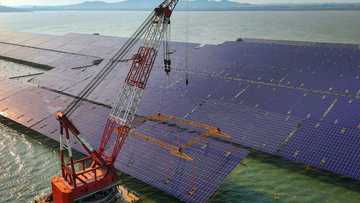Tech migrants 'key' for US growth, warns OECD chief economist

Source: AFP
High-skilled migrants are vital for the US economy, the OECD's chief economist told AFP, after the United States imposed a $100,000 fee for H-1B visas widely used by the tech industry.
Alvaro Pereira, who is leaving his post after being named governor of Portugal's central bank, spoke to AFP as the Paris-based organisation released an updated outlook for the world economy.
The Organisation for Economic Co-operation and Development, a 38-member grouping of wealthy nations, upgraded the forecast to 3.2 percent growth in 2025, up from 2.9 percent in its last report in June.
The OECD said the economy "proved more resilient than anticipated" in the first half of the year as companies rushed to import goods before US President Donald Trump's tariffs took effect.
It also raised the US growth outlook from 1.6 percent to 1.8 percent but warned it was expected to slow as higher tariffs start to bite.
The OECD said cuts in the US federal workforce and Trump's crackdown on immigration would also soften growth.
"There's obviously less labour growth and less labour growth means that obviously this will impact total GDP," Pereira told AFP.
He noted that the report was written before the new H-1B visa fee rule came into force over the weekend.
"We do think that continuing to attract high-skilled individuals from the United States or from around the world is a key strength of the US economy," Pereira said.
"This will only become exacerbated with the AI boom, because basically there's significant labour shortages in the ICT (information and communication technology) sector."
H-1B visas allow companies to sponsor foreign workers with specialised skills --- such as scientists, engineers and computer programmers -- to work in the US, initially for three years but extendable to six.
Such visas are widely used by the tech industry. Indian nationals account for nearly three-quarters of the permits allotted via lottery system each year.
The US and Germany are the two OECD countries with the highest labour shortage in the ICT sector, Pereira said.
Tariff impact taking 'longer'
The OECD report said the impact of Trump's tariffs had been mitigated by companies "front-loading" -- importing goods before the levies came into force.
"The impact of tariffs is taking longer to reach the economy," Pereira said.
"A lot of firms decided to act and export a stockpile (to) the United States ... to avoid the tariffs."
But he warned that the OECD was already seeing "less growth and more inflation" than expected.
"Usually when the world economy is doing really well, it's growing around four percent, so were far away from that," he said.
Source: AFP



